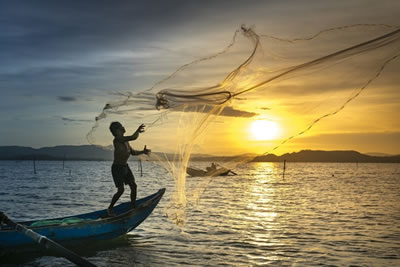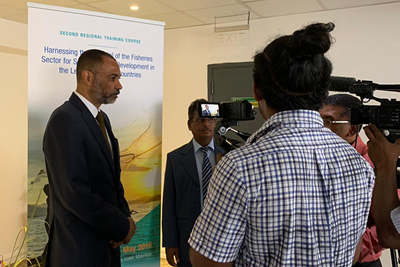Centre will bring together experts, researchers and policymakers from least developed countries and other African and Asian countries to develop their fisheries sectors.
UNCTAD and Mauritius signed a memorandum of understanding on 6 May in the western Mauritian town of Quatre Bornes to open a new centre of excellence for the fisheries sector in developing countries.
The centre will serve as a practical site for putting policy recommendations for least developed countries (LDCs) into action.
“This includes providing support to training activities and building institutional, as well as regulatory capacities of developing countries,” said Paul Akiwumi, director of UNCTAD’s division for Africa and least developed countries.
The centre will host training and capacity-building events for African and Asian countries, with an eye towards harnessing the potential of their fisheries and aquaculture sectors for sustainable growth, transformation and poverty alleviation.
With the centre, Mauritius’s Ministry of Ocean Economy, Marine Resources, Fisheries and Shipping joins the Nha Trang University of Vietnam, home to the Asian Regional Center of Excellence for the Fisheries Sector, the Royal Tropical Institute of the Netherlands and the European University Institute in Florence, Italy as UNCTAD centres of excellence.
“The fisheries sector in Mauritius has great potential to boost growth, employment and food security,” said the permanent secretary of the Mauritian ministry, Virendra Daby.
Mr. Daby said training provided by the centre would increase the expertise and technical knowledge of governments to formulate and implement export development and diversification strategies to tap the potential of the fisheries sector in LDCs.
Avenue for exchanging best practices and insights
The centre will bring together international experts, researchers and policymakers from least developed countries, and other African and Asian countries with strong experiences in developing their fisheries sectors to exchange best practices and insights.
It will also provide interactive and hands-on training courses, starting with a regional training course on harnessing the potential of the fisheries sector for socioeconomic development in LDCs taking place 6 to 11 May. A similar course was held in Vietnam in November 2018.
Centre will benefit many developing countries
“Many LDCs and small island developing states from Africa, and other regions, stand to benefit from the experience of Mauritius in the development of its domestic fisheries sector,” Mr. Akiwumi said.
UNCTAD’s Mussie Delelegn, also from the division for Africa and least developed countries, said: “We are excited to leverage the extensive expertise of the ministry and to transfer this know-how and good practices to other developing countries.”
Countries also stand to gain from the research capacities at the Mauritius Oceanography Institute and the Albion Fisheries Research Centre of Mauritius.
LDCs are among the largest producers of fish in the world. Six of the top 16 producers of fish from inland waters are LDCs.
For 14 out of the world’s 47 LDCs, fish is one of their top five export products, but globally, the LDC share in total fish exports remains at just 2%.
Despite the size and economic importance of fisheries in these countries, the sector remains mostly informal, dominated by small-scale and traditional fishing, with limited scope for food processing or the transformation of fish and seafood into higher-value-added products.


